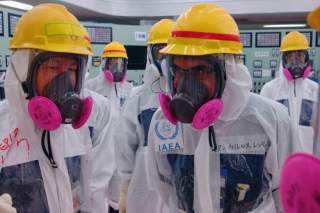To Prevent Another Iran Disaster, Fix Nuclear Enforcement
Another country can’t slip through the cracks of nonproliferation.
In conclusion, as controversial as the JCPOA is, the full and unconditional implementation of the deal as a first step is essential for the future of the NPT and the nonproliferation regime. But that is not enough. Indeed, the process of dealing with Iran, and the JCPOA itself, should not serve as a model for dealing with future proliferators; the international community should not allow a future proliferator to reach the point that Iran did. If there is one lesson to be learned, it is that to be effective, international efforts to curb potential nuclear proliferators must come at a very early stage. The more the proliferator is able to progress, the less chance there is of effectively stopping it.
Because the JCPOA should not serve as a model for future proliferators—who might be tempted to go the way of Iran, and reap the same recognition and benefits that Iran has accrued—it is incumbent upon the P5+1 and the supplier states to live up to their declaratory statements regarding the imperative of stemming nuclear proliferation. To do so, they must introduce new measures that will help address the problems that were so blatant in the pre-deal period, and prevent other states from going down the same path.
Additional initiatives that are currently being considered—such as phasing out the use of high-enriched uranium in civil commerce, controlling enriched uranium production and improving nuclear security—should also be given highest priority. The urgency of these lessons is especially sharp against the backdrop of the efforts by a growing number of states in the Middle East to diversify their energy sources by advancing civilian nuclear programs.
Emily Landau is a senior research fellow at the Institute for National Security Studies (INSS) and head of its Arms Control and Regional Security Program. Shimon Stein is a senior research fellow at the Institute for National Security Studies (INSS). He served as Israel's ambassador to Germany (2001–07).
Image: An IAEA expert team visited TEPCO's Fukushima Daiichi Nuclear Power Station as part of a mission to review Japan's plans to decommission the facility. Flickr/IAEA Imagebank

